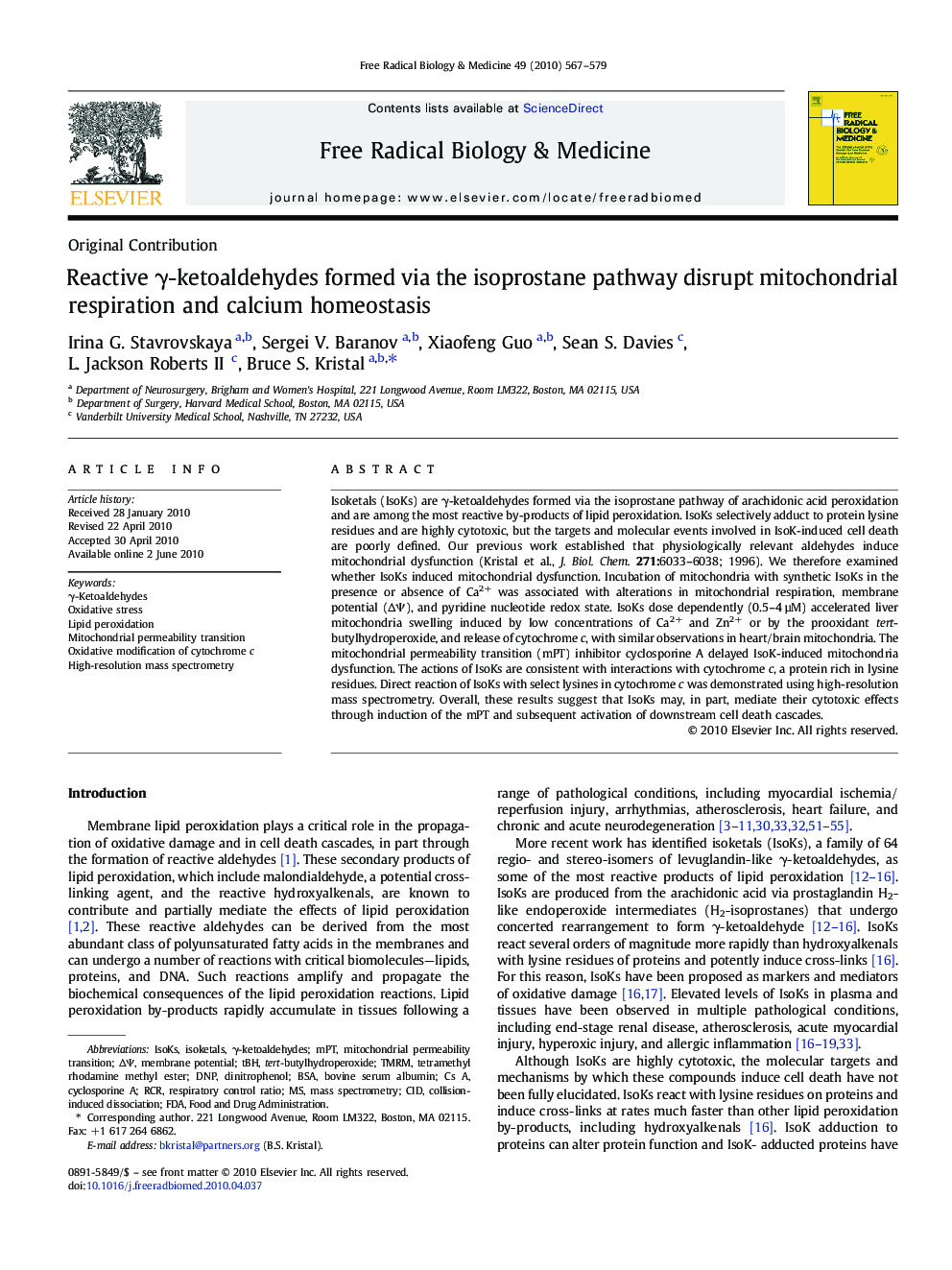| Article ID | Journal | Published Year | Pages | File Type |
|---|---|---|---|---|
| 1909265 | Free Radical Biology and Medicine | 2010 | 13 Pages |
Isoketals (IsoKs) are γ-ketoaldehydes formed via the isoprostane pathway of arachidonic acid peroxidation and are among the most reactive by-products of lipid peroxidation. IsoKs selectively adduct to protein lysine residues and are highly cytotoxic, but the targets and molecular events involved in IsoK-induced cell death are poorly defined. Our previous work established that physiologically relevant aldehydes induce mitochondrial dysfunction (Kristal et al., J. Biol. Chem.271:6033–6038; 1996). We therefore examined whether IsoKs induced mitochondrial dysfunction. Incubation of mitochondria with synthetic IsoKs in the presence or absence of Ca2+ was associated with alterations in mitochondrial respiration, membrane potential (ΔΨ), and pyridine nucleotide redox state. IsoKs dose dependently (0.5–4 µM) accelerated liver mitochondria swelling induced by low concentrations of Ca2+ and Zn2+ or by the prooxidant tert-butylhydroperoxide, and release of cytochrome c, with similar observations in heart/brain mitochondria. The mitochondrial permeability transition (mPT) inhibitor cyclosporine A delayed IsoK-induced mitochondria dysfunction. The actions of IsoKs are consistent with interactions with cytochrome c, a protein rich in lysine residues. Direct reaction of IsoKs with select lysines in cytochrome c was demonstrated using high-resolution mass spectrometry. Overall, these results suggest that IsoKs may, in part, mediate their cytotoxic effects through induction of the mPT and subsequent activation of downstream cell death cascades.
